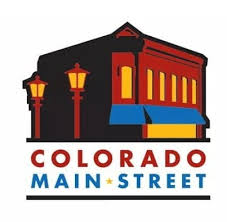“City Above the Clouds” Joins the Bandwagon in Seeking State Designation
Trevor Phipps
Woodland Park is taking the official steps to re-join the national Main Street program, after the effort got stymied locally for a number of years.
If successful, the City Above the Clouds could join Cripple Creek as an official Main Street candidate. Cripple Creek is slightly ahead of WP in the Main Street designation effort, already successfully forming a board.
During the council meeting on August 7, a special work session was held with members of Colorado’s Department of Local Affairs (DOLA). The group discussed what resources and grant possibilities a Main Street designation provides, and the steps involved to become an “exceptional member” of Main Street. The work session was followed by a presentation during the regularly scheduled council meeting by the city’s new Main Street coordinator and Economic Development and Budget Analyst, Anita Riggle.
Riggle was introduced by WP Budget Director Kimberly Burleson as the city employee who will be in charge of the new version of the city’s Main Street program. To become a member of Main Street, the city must designate an employee to head the program.
Riggle started her presentation by explaining the four different levels of being a Main Street member (aspiring, achieving, excelling and exceptional). Woodland Park (along with Cripple Creek) currently sits at the “aspiring” member level, which involves an online application and a letter of interest from the community.
Cripple Creek recently met this level for the first time, whereas Woodland Park was once an “exceptional” Main Street member before the city chose to leave the program. The city of Victor is currently the only municipality in the Ute Pass region that is considered an exceptional Main Street member. Currently 27 Colorado communities are exceptional Main Street members while 71 are in the “aspiring” status.
“Communities at this level (aspiring) can communicate with the Main Street network and receive some support, but they are not considered an official Main Street community yet,” Riggle explained. “We are an aspiring community now, we are resetting. We hope to be an achieving community as quickly as possible, which is a community that has made significant progress in meeting the program’s core requirements and has a strong foundation for revitalization.”
Riggle then presented the council her plan to reach the achieving level by April 2026. The process started last July, and the city is taking the next steps, such as designating a Main Street coordinator and looking for Main Street board members. The city has opened up application for members of the community to join the Main Street board.
Woodland Park first became an “achieving” Main Street member in 2016 and they moved up to the “excelling” level in 2019. But the city decided to leave the program in 2024 due to the unsustainability of the Main Street program operating as an independent non-profit organization outside of the city’s purview. At the time, some tension persisted between city officials and local Main Street leaders. In essence, the city couldn’t continue with the program by just relying on volunteers.
“Official Main Street communities receive a full range of technical assistance, training, consulting services, mini-grants (that require a 25 percent match) and scholarships,” Riggle said.
Main Street Benefits Outlined
In the past, mini-grants from Main Street provided the city with certain downtown enhancement projects, such as Antlers Alley, a stagecoach sculpture, downtown banners for the city and pedestrian way-finding signage. The former Main Street program also operated the city’s Shop Small Business Saturday promotion, held summer sidewalk sales events, promoted Main Street businesses on their website and social media channels and helped maintain the beauty of the downtown core.
For the new version of WP’s Main Street effort, city officials outlined plans to utilize the program and its mini-grants. Preserving history, maintaining an attractive downtown area and investing in the downtown’s future goals topped the new Main Street program wish list for Woodland Park.
During the work session, two representatives from Colorado’s DOLA (Department of Local Affairs) addressed the council and explained to them the steps needed to become an exceptional Main Street member. They also described and gave examples of what the Main Street program has done to help other Colorado communities.
According to DOLA’s Main Street coordinator Gayle Langley and their Main Street Specialist Traci Stoffel, the program offers several levels of support that includes consulting and helping with community branding, along with financial assistance in the form of scholarships and mini-grants. The Colorado Main Street team now consists of four full-time employees including a special Main Street architect, Larry Lucas.
Main Street was started at the national level in 1980 as a way to aid small communities. The original focus for the program was to focus mainly on historic preservation. But the Main Street program has now expanded to now help with creating community-led downtown revitalization.
Currently, there are more than 12,000 Main Street communities nationwide. In Colorado, the Main Street program is housed within the state’s Department of Local Affairs.





